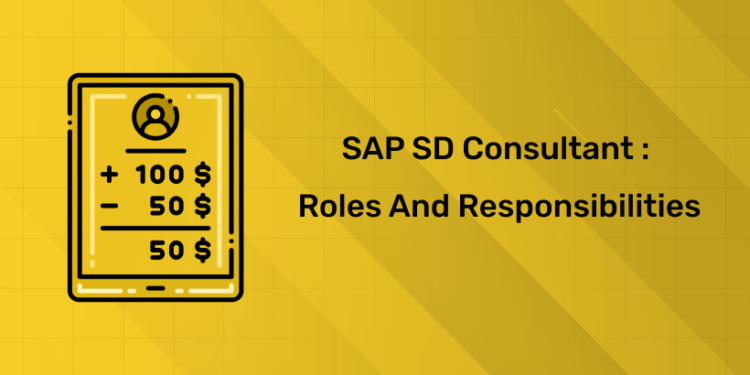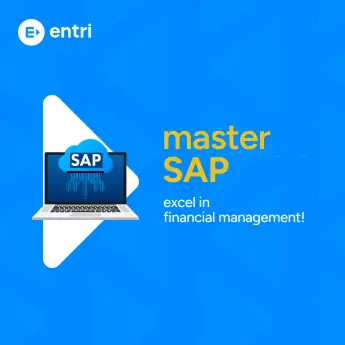Table of Contents
Introduction
Today, the need for experts who can skillfully work with complicated enterprise resource planning (ERP) systems reaches unprecedented levels. One of the most important and desirable jobs in any company that uses SAP software is that of the SAP SD Consultant, an expert in SAP’s Sales and Distribution module. The SAP SD Consultant is not a mere technician but rather a business partner who assists companies in optimizing their sales operations, increasing customer satisfaction, and boosting profits. This blog post will explore the various functions and duties performed by an SAP SD Consultant and how they impact the success of the entire business.
Understanding the SAP SD Module
In order to understand the importance of the SAP SD Consultant, we need to first understand what the SAP SD module is. SAP Sales and Distribution (SD) is an essential module of the SAP ERP system that handles the sales process, including order management, delivery, and invoicing. Its module is connected to other SAP modules such as Material Management (MM) and Finance (FI), providing an integrated and efficient solution for all aspects of a business. The SAP SD Consultant implements, configures and fine-tunes these processes according to the particular requirements of his or her organisation and is therefore a very valuable person in the world of ERP.
Master SAP with Expert-Led Courses
Unlock your potential with our comprehensive SAP courses! Learn essential modules like SAP MM (Materials Management), SAP SD (Sales and Distribution), and SAP FICO (Financial Accounting and Controlling) from industry experts.
Know MoreKey Roles of an SAP SD Consultant
1. System Configuration and Customization
A major duty of an SAP SD Consultant is to configure and customise the SAP SD module to fit the specific needs of the organisation. This means configuring the system with components such as sales organisations, distribution channels and pricing procedures so that the system can reflect the way the business operates. By customising the SAP SD module to the organisation’s requirements, the consultant can help the organisation improve its sales processes and become more efficient.
2. Order Management
Every enterprise needs to manage its orders effectively, and one of the key players in this process is the SAP SD Consultant. They manage the sales order process, from sales order creation and processing through order status tracking to the delivery of goods or services. Using knowledge of the SAP SD module, the consultants can increase the accuracy and fulfilment rates of orders, which will make customers happier.
3. Delivery and Logistics Management
SAP SD Consultants are responsible not only for managing sales orders but also for overseeing delivery. It means organizing transportation, planning shipments and delivering products to customers. They make use of the SAP SD module to optimise delivery routes, track shipments, and manage problems that occur in transit. Such expertise is essential for nurturing customer intimacy and operational effectiveness.
4. Billing and Invoicing
The SAP SD Consultant is also responsible for handling billing and invoicing processes. They make sure that invoices are accurate and issued on time and that all billing questions are handled swiftly. This entails setting up billing documents in the SAP computer system, overseeing credits and debits, and adhering to legal requirements.
5. Integration with Other Modules
It’s vital that SAP SD module can communicate with other SAP modules, such as MM and FI, so that information can flow smoothly throughout the company. SAP SD Consultants ensure that all these integrations work smoothly, enabling real-time data sharing and better-informed decisions. Such integration is essential for a comprehensive understanding of business activity and allows companies to adapt better to changes in the market.
6. Master Data Management
Another important task of the SAP SD Consultant is the efficient handling of master data, such as customer data, product data and pricing data. They are responsible for keeping the SAP system full of correct and current master data, which is essential for efficient sales and distribution. This data integrity saves organisations expensive mistakes and increases their efficiency.
7. Customer Relationship Management (CRM)
SAP SD Consultants are also instrumental in improving customer relations. They use the SAP SD module to record all customer contacts, maintain customer accounts and analyse sales trends and opportunities. Using this data, consultants can assist companies in formulating specific marketing strategies and engaging customers more effectively.
8. Training and Support
The SAP SD Consultant also needs to train and support users, a task often overlooked. Consultants train end-users in the proper use of the SAP SD module, advise them on best practices and help them with problems and queries. It is essential for the organisation to extract the maximum possible benefits from the SAP system.
9. Problem Resolution and Troubleshooting
Since no system is perfect, problems are bound to arise, and when they do the SAP SD Consultant is usually the first line of defense. They troubleshoot problems in the sales and distribution process, determine their causes and develop solutions that will prevent recurrence. This reduces not only the need for interventions but also the SAP system’s downtime and unreliability.
10. Compliance and Documentation
The SAP SD Consultant also makes sure that the system complies with industry standards and regulations. They are required to keep detailed records of all processes, settings and alterations in the SAP system. Such documentation is useful for conducting audits and for verifying the organization’s compliance with laws and regulations.
11. Project Management
A good number of SAP SD Consultants serve as project managers, responsible for implementing new solutions and improvements to the SAP SD module. This involves working with teams from different departments, overseeing schedules and budgets, and ensuring that projects are completed successfully. However, effective project management is crucial to achieving projects that fulfil the organisation’s aims and objectives.
12. Strategic Planning and Analysis
SAP SD Consultants usually also spend time on planning and analysis, beyond their daily responsibilities. They examine sales data and trends in order to offer insights for business decisions and strategies. Using their knowledge, consultants can assist companies in discovering opportunities for growth, setting prices more effectively and improving profitability across the board.
Skills Required for an SAP SD Consultant
In order to effectively perform these roles and responsibilities, an SAP SD Consultant needs to have a wide range of skills, including technical and interpersonal skills. The job requires some of the following skills:
Technical Skills: Mastery of SAP SD module’s capabilities and settings.
Analytical Skills: The capacity to break down and comprehend complex data sets in order to extract actionable insights.
Troubleshooting Skills: Effective and efficient at resolving problems.
Communication Skills: Very good verbal and written communication skills to train users and cooperate with team members.
Project Management Skills: Experience managing projects, timelines and budgets.
Customer Focus: A commitment to improving customer satisfaction and relationships.
Flexibility: The capacity to implement changes in response to shifting market demands and new technologies.
Career Opportunities for SAP SD Consultants
SAP SD Consultants have a good chance of finding employment because more and more businesses depend on ERP systems. Skilled and experienced consultants may advance to a number of other careers, such as:
SAP SD Specialist: Concentrate on certain aspects of SAP SD, providing specialist advice on how to enhance system performance.
SAP SD Business Analyst: Understand business requirements and translate them into SAP SD capabilities.
SAP SD FUNCTIONAL CONSULTANT: Configures and customizes SAP SD according to client requirements and trains users.
SAP SD Technical Consultant: Deals with technical issues such as system integration and custom development.
SAP SD Implementation Consultant: Implement SAP SD solutions and deliver successful projects.
SAP SD Project Manager: Supervise SAP SD projects and control schedules and budgets.
Master SAP with Expert-Led Courses
Unlock your potential with our comprehensive SAP courses! Learn essential modules like SAP MM (Materials Management), SAP SD (Sales and Distribution), and SAP FICO (Financial Accounting and Controlling) from industry experts.
Know MoreConclusion
In conclusion, an SAP SD Consultant plays a vital role in any organisation that implements SAP’s Sales and Distribution module. They help streamline and facilitate sales processes, from configuring systems and managing orders to training and compliance. And as companies change and develop in order to meet new challenges, the need for proficient SAP SD Consultants will only increase.
If you wish to pursue a promising career as an SAP SD Consultant, sign up for Entri’s SAP Sales and Distribution Course. This full package teaches you everything necessary to become a successful professional in this exciting field, including practical training and personal support. Visit Entri’s SAP Sales and Distribution Course now to find out more about the course and begin your journey towards becoming an SAP SD Consultant!
Master SAP with Expert-Led Courses
Unlock your potential with our comprehensive SAP courses! Learn essential modules like SAP MM (Materials Management), SAP SD (Sales and Distribution), and SAP FICO (Financial Accounting and Controlling) from industry experts.
Know MoreFrequently Asked Questions
What is an SAP SD Consultant?
An SAP SD Consultant specializes in the Sales and Distribution module of SAP, responsible for configuring, implementing, and optimizing sales processes within organizations using SAP software.
What are the primary responsibilities of an SAP SD Consultant?
Key responsibilities include system configuration, order management, delivery and logistics management, billing and invoicing, master data management, and integration with other SAP modules.
Do I need prior experience with SAP to become an SAP SD Consultant?
While prior SAP experience is beneficial, it is not mandatory. Basic knowledge of ERP systems and business processes is helpful, and many training programs are available to build expertise.
What skills are essential for an SAP SD Consultant?
Essential skills include technical proficiency in SAP SD, analytical and problem-solving abilities, strong communication skills, project management experience, and a customer-focused mindset.
How long does it take to become proficient as an SAP SD Consultant?
The time required to become proficient can vary, but completing a dedicated training program typically takes around three months, followed by practical experience.
What career opportunities are available for SAP SD Consultants?
Career opportunities include roles such as SAP SD Specialist, Business Analyst, Functional Consultant, Technical Consultant, Implementation Specialist, and Project Manager.
What is the salary range for an SAP SD Consultant?
Salaries can vary based on experience, expertise, and location, typically ranging from ₹6,00,000 to ₹15,00,000 per year, with senior consultants earning higher salaries.
Is practical training included in SAP SD courses?
Yes, most SAP SD training courses include hands-on exercises and real-world scenarios to ensure participants can apply their knowledge effectively.
How does an SAP SD Consultant contribute to customer satisfaction?
By streamlining sales processes, managing orders efficiently, and ensuring accurate billing and delivery, SAP SD Consultants enhance overall customer experiences and satisfaction.
Can working professionals enroll in SAP SD training courses?
Yes, many training programs offer flexible schedules to accommodate working professionals, making it easier to balance learning with job responsibilities.










